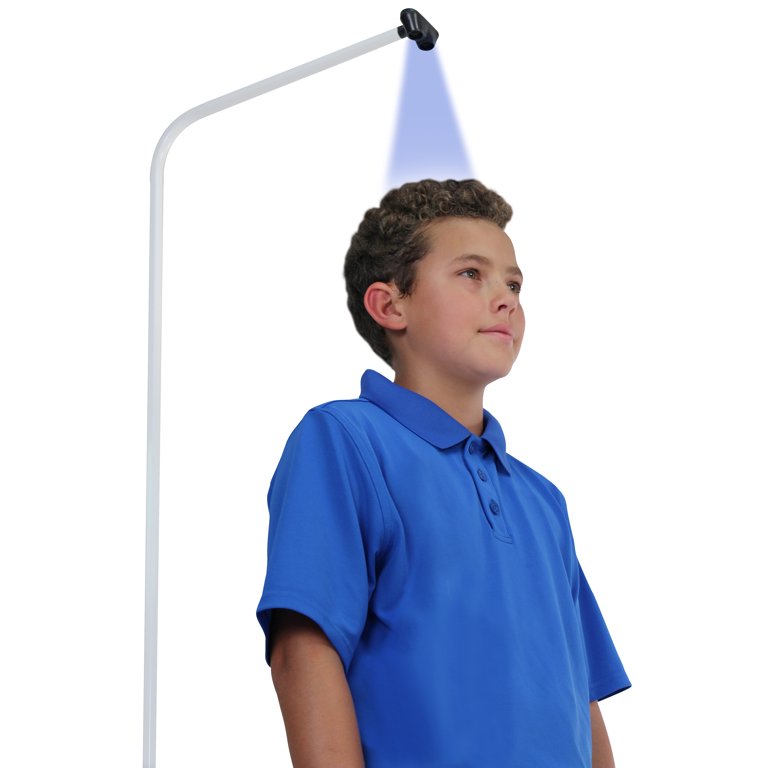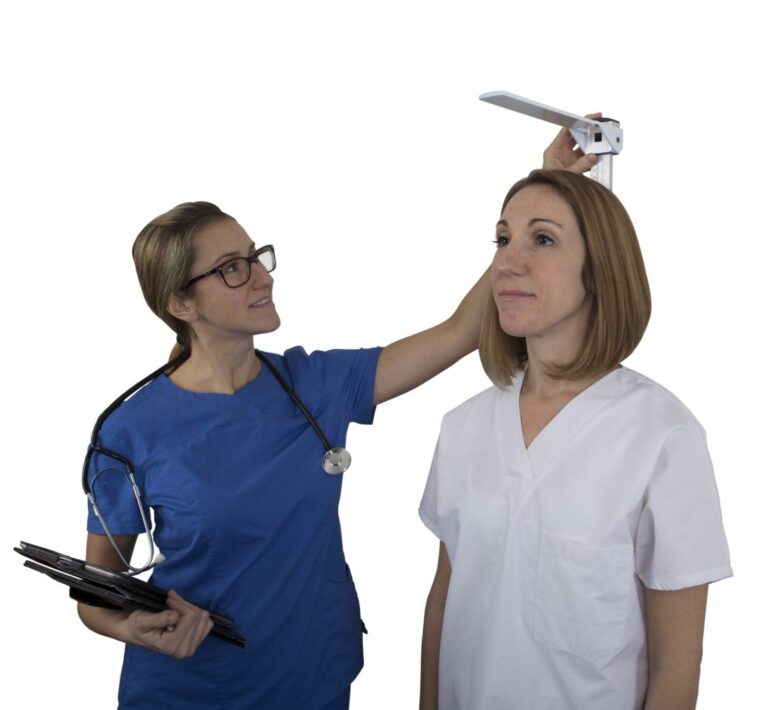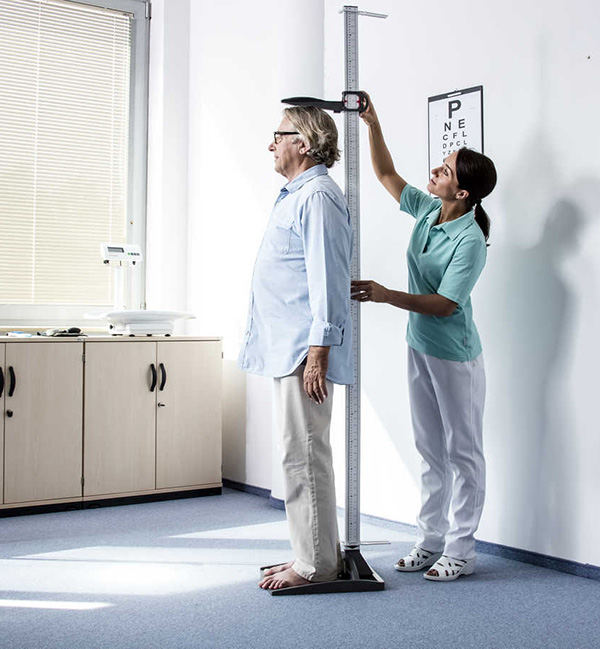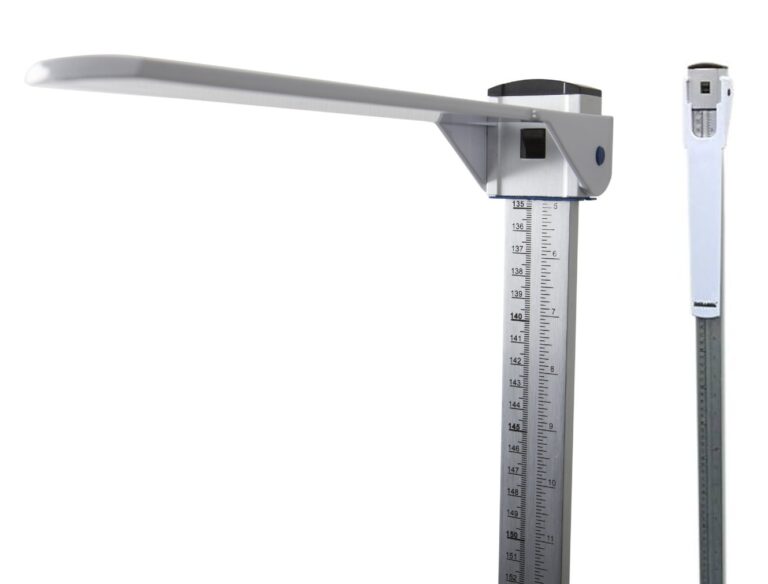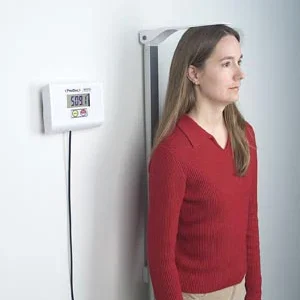Wall Mounted Stadiometers
When it comes to accurately measuring patient heights, wall-mounted stadiometers are the ideal choice. These devices come in both analog and digital variants to cater to the diverse preferences of healthcare professionals.
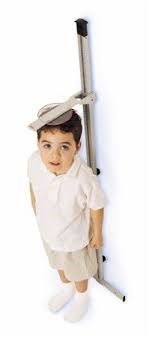
Analog Wall Mounted Stadiometers
Analog stadiometers are a classic choice and are equipped with installation hardware, making the mounting process a breeze. This ensures that healthcare facilities can swiftly integrate these instruments into their examination rooms, enhancing efficiency and precision.
Advantages of a Analog Wall Mounted Stadiometer
Accuracy: Analog stadiometers are known for their precise height measurements, making them a dependable tool for healthcare professionals.
Cost-Effective: Analog stadiometers are often more budget-friendly compared to their digital counterparts, making them a cost-effective choice for healthcare facilities with budget constraints.
Durability: These stadiometers are typically built to last, with sturdy construction that can withstand frequent use and minor impacts.
Low Maintenance: Analog stadiometers generally require less maintenance and have a longer lifespan than some digital devices, reducing ongoing operational costs.
No Power Dependency: They don’t rely on electrical power or batteries, ensuring that they can be used at all times without the need for power sources, which is especially useful in emergency situations.
Easy Installation: Many analog stadiometers come with installation hardware, making the mounting process straightforward and quick.
User-Friendly: They are easy to use and don’t require extensive training, making them accessible for a wide range of healthcare professionals.
No Calibration Required: Unlike digital stadiometers that may need regular calibration, analog stadiometers are typically calibrated during the initial setup and remain accurate for an extended period.
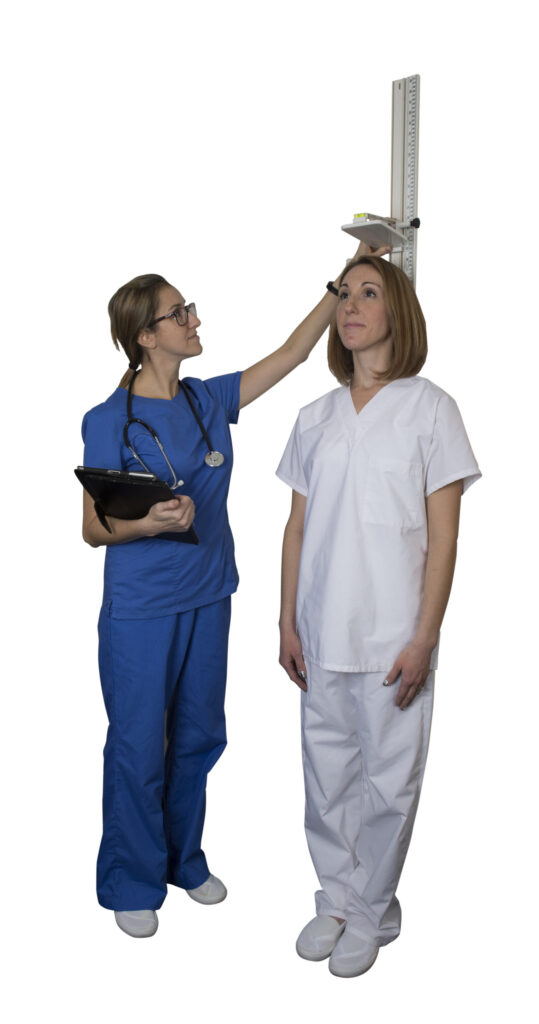
Digital Wall Mounted Stadiometer
For those who prioritize hygiene and infection control, digital stadiometers are the way to go. They feature touch-free functions that minimize the risk of cross-contamination. This is particularly crucial in healthcare settings where patient safety and cleanliness are paramount.
Advantages of Digital Wall Mounted Stadiometer
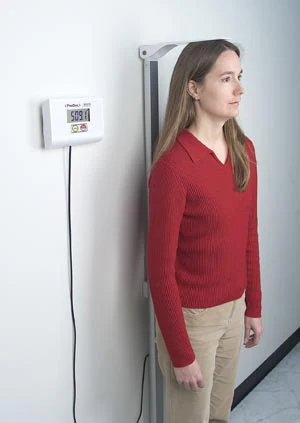
Precision: Digital stadiometers provide highly accurate height measurements, often to the decimal point, ensuring precise patient data.
Ease of Reading: Digital displays offer clear and easily readable measurements, reducing the potential for human error in transcription.
Efficiency: They provide quick and efficient height measurements, saving valuable time for healthcare professionals.
Digital Record Keeping: Height measurements can be easily integrated into digital health records and systems, streamlining data management.
Data Trending: Digital stadiometers can store a patient’s height measurements over time, allowing for better tracking of growth or changes in height.
Multiple Measurement Units: Digital stadiometers can often be switched between different units of measurement (e.g., inches, centimeters), accommodating international standards.
Touch-Free Operation: Some models are equipped with touch-free or proximity sensors, reducing the risk of cross-contamination, an important consideration for infection control in healthcare settings.
Built-in Memory: Many digital stadiometers have memory functions to store multiple patient profiles, eliminating the need for manual record-keeping.
Data Connectivity: They can be integrated with other healthcare equipment and software, enhancing the overall interoperability of a healthcare facility.
Long-Term Reliability: While they do require power, digital stadiometers are generally reliable with regular maintenance and appropriate power backup solutions.
Improved Data Accuracy: Electronic measurements reduce the risk of transcription errors, contributing to higher data accuracy.
Ensuring Accuracy and Consistency
Whether you prefer traditional analog stadiometers with easy installation or modern digital stadiometers with touch-free functionality, there’s a stadiometer to suit your healthcare facility’s needs. These devices not only enable precise height measurements but also enhance the overall quality of care provided to patients.
